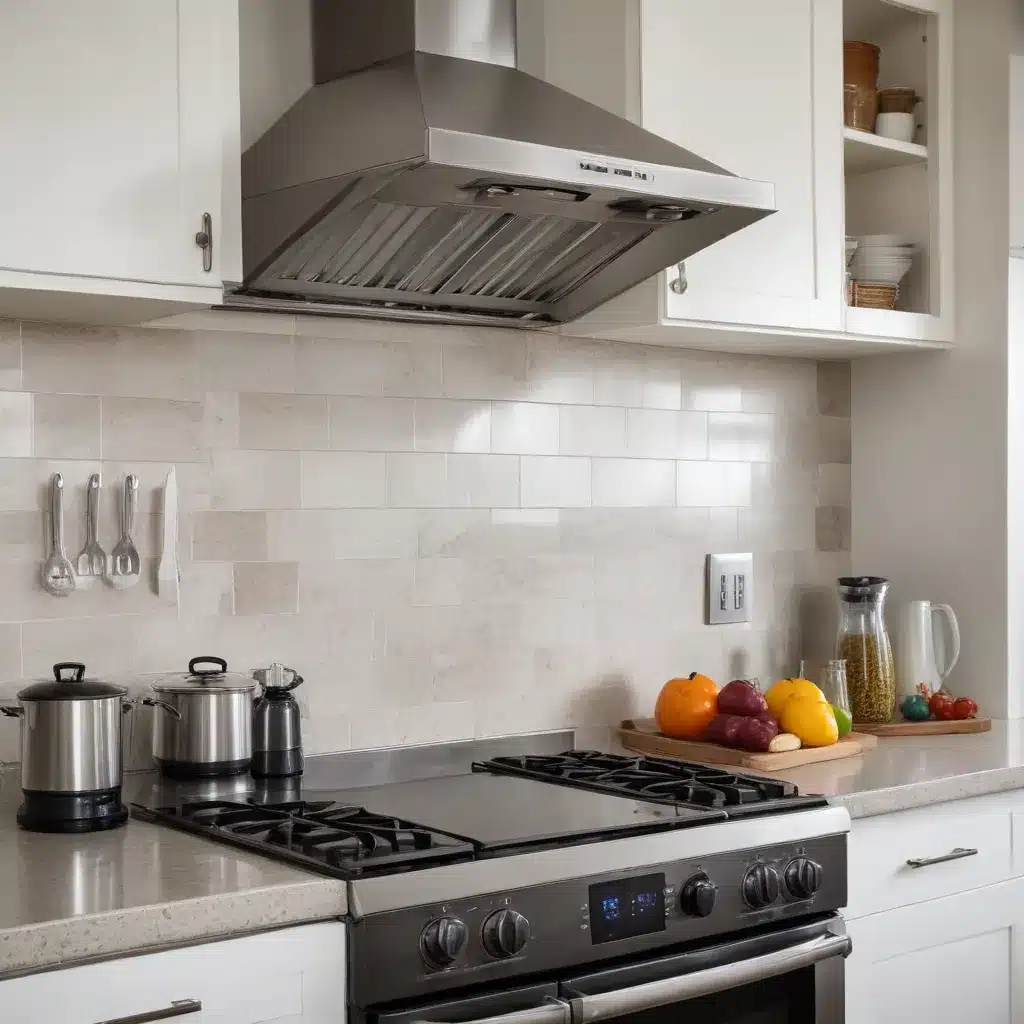
As a seasoned culinary professional, I’ve seen firsthand how the efficiency of kitchen appliances can have a significant impact on energy consumption and monthly utility bills. In this comprehensive guide, I’ll share practical tips, insights, and strategies to help you maintain, upgrade, and troubleshoot your kitchen appliances for maximum energy efficiency.
Assessing Your Current Appliances
The first step in improving the energy efficiency of your kitchen is to evaluate your existing appliances. If you’ve recently moved into a new home, as mentioned in the Reddit thread, you may have inherited older, less energy-efficient models from the previous owner.
While these older appliances may still be in working condition, it’s essential to consider their impact on your energy bills and the environment. Older refrigerators, ovens, and dishwashers can consume significantly more energy than their modern, ENERGY STAR-certified counterparts.
As the Energy.gov article suggests, upgrading to energy-efficient appliances can lead to substantial savings on your energy bills, even in the long run. Keep in mind that the upfront cost of replacing an appliance may be offset by the long-term energy savings and reduced environmental impact.
Prioritizing Appliance Upgrades
When it comes to upgrading your kitchen appliances, it’s essential to focus on the ones that consume the most energy. Typically, the biggest energy hogs in the kitchen are the refrigerator, oven, and dishwasher.
Refrigerator
Upgrading an older refrigerator to a newer, ENERGY STAR-certified model can result in significant energy savings. Look for features like automatic defrost, efficient compressors, and advanced insulation to maximize efficiency.
Oven and Cooktop
Transitioning from a traditional gas or electric oven to a high-efficiency, ENERGY STAR-certified model can greatly reduce your energy consumption. Consider exploring induction cooktops, which are highly efficient and offer precise temperature control.
Dishwasher
Dishwashers can be significant energy users, especially if they’re older models. Upgrading to an ENERGY STAR-certified dishwasher can cut energy and water usage by up to 30%.
It’s important to note that while the initial cost of appliance upgrades may be higher, the long-term savings on your energy bills can make the investment worthwhile. Additionally, many utility companies and government programs, such as the Energy Savings Assistance (ESA) program mentioned in the source content, offer rebates and incentives to help offset the cost of energy-efficient appliance upgrades.
Maintaining Appliance Efficiency
Proper maintenance is crucial for ensuring your kitchen appliances operate at peak efficiency. Regular cleaning, calibration, and minor repairs can go a long way in keeping your appliances running smoothly and minimizing energy usage.
Refrigerator Maintenance
– Clean the condenser coils regularly to improve air circulation and prevent the compressor from working harder than necessary.
– Check the door seals and replace them if they become worn or damaged, as this can cause cold air leaks.
– Ensure the refrigerator is properly leveled to optimize energy efficiency.
Oven and Cooktop Maintenance
– Clean the oven and cooktop surfaces regularly to maintain optimal heat transfer and reduce energy consumption.
– Calibrate the oven temperature to ensure accurate readings and prevent overcooking or undercooking.
– For gas appliances, check for proper combustion and ventilation to ensure safe and efficient operation.
Dishwasher Maintenance
– Clean the filters and remove any food debris to prevent clogs and improve water circulation.
– Check the door seals and replace them if necessary to prevent water leaks.
– Adjust the water temperature and cycle settings to match your specific needs, as higher temperatures and longer cycles can consume more energy.
By staying on top of routine maintenance tasks, you can extend the lifespan of your kitchen appliances and ensure they continue to operate at peak efficiency, saving you money on your energy bills.
Troubleshooting and Upgrades
Even with proper maintenance, kitchen appliances can sometimes experience issues that impact their energy efficiency. In such cases, it’s important to address the problem promptly to prevent further energy waste and potential safety hazards.
Refrigerator Troubleshooting
– If your refrigerator is running constantly or cycling more frequently than normal, it could be a sign of a malfunctioning compressor or a problem with the door seals.
– Unusual noises or vibrations may indicate a problem with the condenser fan or other internal components.
Oven and Cooktop Troubleshooting
– Uneven heating or slow preheating times may be caused by issues with the heating elements or temperature sensors.
– For gas appliances, check for proper gas pressure and ensure the burners are clean and functioning correctly.
Dishwasher Troubleshooting
– Excessive water usage or poor cleaning performance could indicate a problem with the water inlet valve or the spray arm.
– Unusual noises or vibrations may signal a problem with the circulation pump or the door latch.
In the event of any issues, it’s best to consult with a qualified appliance repair technician or refer to the manufacturer’s troubleshooting guides. In some cases, minor repairs or adjustments may be all that’s needed to restore efficiency, while in others, a more substantial upgrade may be necessary.
When considering appliance upgrades, keep an eye out for the ENERGY STAR label, which indicates that the product meets strict energy efficiency guidelines. Additionally, explore rebate programs and incentives offered by utility companies or government agencies, such as the ESA program, to offset the cost of energy-efficient upgrades.
Conclusion
Maintaining energy-efficient kitchen appliances is an essential part of running a sustainable and cost-effective home. By following the tips outlined in this guide, you can ensure your kitchen appliances operate at peak efficiency, reduce your energy consumption, and potentially save money on your monthly utility bills.
Remember, a comprehensive approach to energy efficiency, as mentioned in the Energy.gov article, involves not only upgrading to energy-efficient appliances but also incorporating proper insulation, air sealing, and thermostat management. By combining these strategies, you can maximize your energy savings and contribute to a greener, more sustainable future.
If you’re in need of further assistance or want to learn more about the Kitchen Warrior brand and our other resources, please don’t hesitate to explore our website or reach out to our team of culinary experts.


